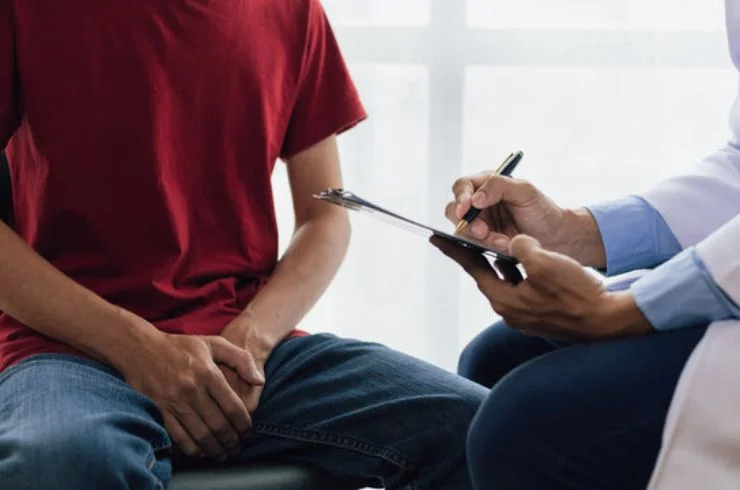Depression/Anxiety

Understanding the Problems
Depression:
- Symptoms: Persistent sadness, loss of interest in daily activities, fatigue, feelings of hopelessness, sleep disturbances, and changes in appetite.
- Causes: Genetics, trauma, chronic stress, chemical imbalances in the brain, medical conditions, and certain medications.
- Impact: Affects overall functioning, including work, relationships, and physical health.
Anxiety:
- Symptoms: Excessive worry, nervousness, restlessness, muscle tension, racing heart, difficulty concentrating, and panic attacks.
- Causes: Stressful life events, genetic predisposition, chronic health issues, and certain substance use.
- Impact: Impairs daily functioning and often leads to avoidance of situations, affecting social and work life.
Diagnosis
Clinical Evaluation:
A thorough assessment by a mental health professional (e.g., psychiatrist, psychologist) to evaluate the severity, duration, and impact of symptoms.Diagnostic Criteria:
- Depression: Using criteria from the DSM-5 or ICD-10 (e.g., presence of five or more symptoms lasting at least two weeks for major depressive disorder).
- Anxiety: Diagnosing based on the DSM-5 criteria (e.g., generalized anxiety disorder, panic disorder, social anxiety disorder), focusing on the presence and impact of excessive worry and physical symptoms.
Screening Tools:
- For Depression: Tools like the Beck Depression Inventory (BDI) or Hamilton Depression Rating Scale to assess symptom severity.
- For Anxiety: Generalized Anxiety Disorder 7 (GAD-7) and Panic Disorder Severity Scale (PDSS) for identifying the type and severity of anxiety.
Medical Tests:
Ruling out other physical conditions (e.g., thyroid dysfunction, vitamin D deficiency) that could mimic symptoms of depression and anxiety.
3. Giving Appropriate Counselling, Therapy, or Medicines
Counselling/Therapy
- Cognitive Behavioral Therapy (CBT):
- Focuses on identifying and changing negative thought patterns and behaviors that contribute to depression and anxiety.
- Teaches practical coping strategies and helps with problem-solving.
- Interpersonal Therapy (IPT):
- Focuses on improving personal relationships and addressing interpersonal stressors that may trigger or worsen depression or anxiety.
- Mindfulness-Based Cognitive Therapy (MBCT):
- Combines mindfulness meditation with CBT to prevent relapse, especially for depression, and manage anxiety.
- Acceptance and Commitment Therapy (ACT):
- Encourages acceptance of difficult emotions and focuses on living in alignment with values rather than avoiding or eliminating negative feelings.
- Psychodynamic Therapy:
- Explores how past experiences, unconscious conflicts, and unresolved issues contribute to current emotional struggles, providing insight and long-term change.
- Supportive Therapy:
- Provides emotional support and validation, often used in conjunction with other therapies to address day-to-day emotional challenges.
Medicines (Pharmacological Treatment)
- Antidepressants:
- SSRIs (Selective Serotonin Reuptake Inhibitors): Commonly prescribed for both depression and anxiety (e.g., fluoxetine, sertraline, escitalopram).
- SNRIs (Serotonin-Norepinephrine Reuptake Inhibitors): Effective for both conditions, helping regulate serotonin and norepinephrine (e.g., venlafaxine, duloxetine).
- Tricyclic Antidepressants (TCAs): Older medications sometimes used for severe depression, though with more side effects (e.g., amitriptyline).
- MAOIs (Monoamine Oxidase Inhibitors): Typically used when other medications are ineffective (e.g., phenelzine, tranylcypromine).
- Anti-Anxiety Medications:
- Benzodiazepines: Fast-acting medications used for acute anxiety episodes, but not recommended for long-term use due to dependency risks (e.g., alprazolam, lorazepam).
- Buspirone: A non-habit-forming medication used for chronic anxiety, less sedative than benzodiazepines.
- Other Medications:
- Atypical Antipsychotics: Occasionally added to treatment when other medications fail, especially for treatment-resistant depression or severe anxiety (e.g., quetiapine).
- Mood Stabilizers: For patients with co-occurring mood disorders, such as bipolar disorder, where depression and anxiety symptoms overlap (e.g., lithium, valproate).
- Beta-Blockers: Used to manage the physical symptoms of anxiety (e.g., trembling, rapid heartbeat), often in social anxiety or performance anxiety situations.
4. Integrated Approach
Combination of Therapy and Medication:
For many individuals, combining psychotherapy with medications provides the most effective treatment for depression and anxiety.Lifestyle Changes:
Encouraging physical activity, healthy sleep habits, and proper nutrition as part of a holistic approach to treatment.Regular Follow-up:
Continuous monitoring of symptoms, adjusting therapies and medications as needed, and ensuring long-term support to prevent relapse.Crisis Management:
Immediate care and intervention for individuals in acute distress or at risk of self-harm or suicide, including safety planning and emergency services.